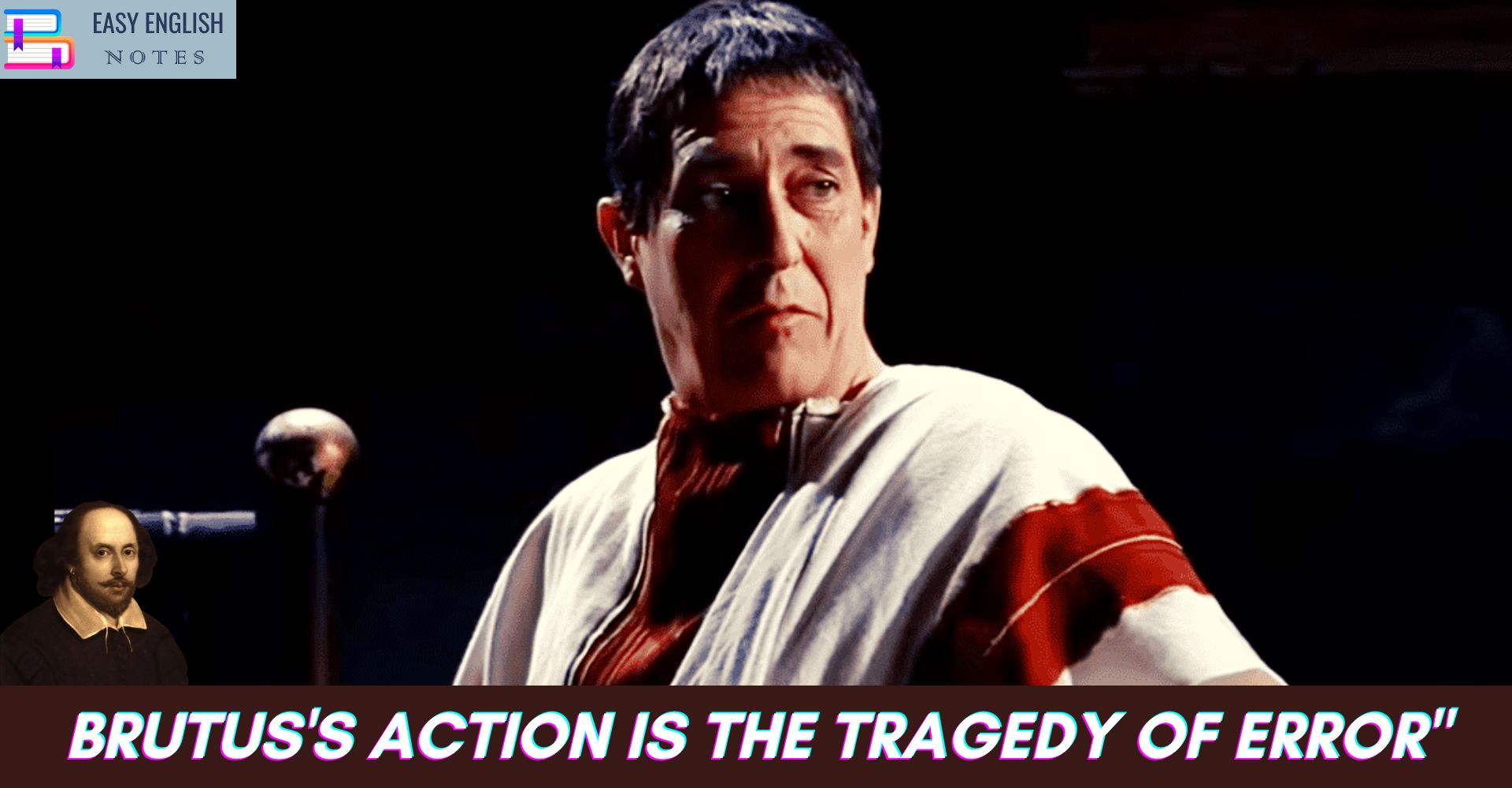In killing Caesar, Brutus’s aim was to destroy Caesarism, as he told Caius, “Let us be sacrificers, but not butchers.” But after the murder of Caesar, Caesarism became more firmly established in Rome than before. The reason may be ascribed to the fact that Brutus failed to understand that the days of republicanism had ended and that Rome needed some sort of Caesarism. The conspiracy failed in its political object, namely the ending of autocracy.
Brutus failed in his mission on account of several errors that he commit-ted in the course of his decisions. He lacked practical wisdom. He lived only in abstractions. He thought that the moment Caesar was killed liberty and freedom would be ushered in Rome. His aim was pious in itself, as is evident by his words:
“We all stand up against the spirit of Caesar,
And in the spirit of men there is no blood.
O that we then could come by Caesar’s spirit,
And not dismember Caesar! But, alas!
Caesar must bleed for it.”
It was here that Brutus committed the error. He should have known that good results can never come out of murder and foul acts. Moreover, Brutus forgot that by now people of Rome had become very much degenerate. The spirit of freedom which inspired the old Romans was now completely extinct. What Rome needed was a form of benevolent despotism for which Caesar was best fitted. Cassius rightly sums up the state of Romans:
…………………………for Romans now
Have thews and limbs like to their ancestors,
But woe the while! Our fathers minds are dead.
Also Read :
- Compare Hamlet with Macbeth, Othello and other Tragedies
- A Short Note On The Use Of Imagery In Shakespeare’s Sonnets
- Prologue to Canterbury Tales – (Short Ques & Ans)
Brutus failed to understand the fickleness of the Romans. The Romans were ready to follow the strong man who could move them at the movement. First, Pompey was their hero, then Caesar, then Brutus and finally Antony. How could such people show steadfastness to anyone? For such people benevolent autocracy was the best form of Government. This was what Caesar was trying to practice in Rome. If this had continued for some time it would have brought order out of Chaos. Caesar was keeping up, by his own dominating personality, the tottering frame of republicanism. He was keeping in check those forces which, under the leadership of Antony, wanted absolutism to pre- vail in Rome. Caesar’s death released these forces and the result was that a worse type of autocracy came into existence with his successor. So, the conspiracy was absolutely ill-timed.
Next, it was a great blunder on Brutus’s part not to have formed an alter- native and settled form of government to replace that which he was going to exterminate. As a consequence, it was easy enough to Octavius, to continue the somewhat unbroken record of imperialist rule without much interruption after Caesar’s death. Then, as the accredited leader of the conspiracy, Brutus committed a series of practical mistakes refusing to abide by the wiser policy suggested to him by the practical and sagacious Cassius by his own human nature and lack of worldly wisdom, i.e., refusing to bind his comrades and confederates by an oath of loyalty; to kill Antony along with Caesar; in allowing him to deliver the funeral oration; in marching to Philippi; in ordering his men to attack much too early; and in allowing them to fall to plunder, thus exposing the flank of Cassius’s division of the army to the enemy.
Thus, it may be said that Brutus’s career was the Tragedy of Errors. His action was not only a crime but a political blunder which resulted in the disaster of Brutus and all his supporters. As Cicero said, the tyrant was taken away but tyranny survived. A small evil was removed but a great evil was created. The murder of Caesar was a most injudicious, unwise and impolitic step.
PLEASE HELP ME TO REACH 1000 SUBSCRIBER ON MY COOKING YT CHANNEL (CLICK HERE)











